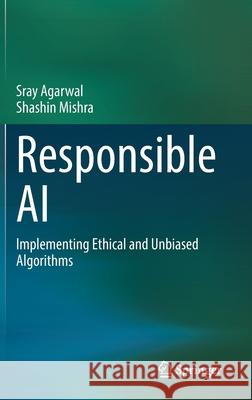Responsible AI: Implementing Ethical and Unbiased Algorithms » książka
topmenu
Responsible AI: Implementing Ethical and Unbiased Algorithms
ISBN-13: 9783030769772 / Angielski / Twarda / 2021 / 179 str.
Responsible AI: Implementing Ethical and Unbiased Algorithms
ISBN-13: 9783030769772 / Angielski / Twarda / 2021 / 179 str.
cena 346,96 zł
(netto: 330,44 VAT: 5%)
Najniższa cena z 30 dni: 344,56 zł
(netto: 330,44 VAT: 5%)
Najniższa cena z 30 dni: 344,56 zł
Termin realizacji zamówienia:
ok. 20 dni roboczych.
ok. 20 dni roboczych.
Darmowa dostawa!
Kategorie:
Kategorie BISAC:
Wydawca:
Springer
Język:
Angielski
ISBN-13:
9783030769772
Rok wydania:
2021
Wydanie:
2021
Ilość stron:
179
Waga:
0.45 kg
Wymiary:
23.39 x 15.6 x 1.27
Oprawa:
Twarda
Wolumenów:
01
Dodatkowe informacje:
Wydanie ilustrowane











